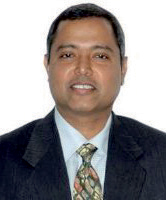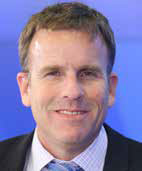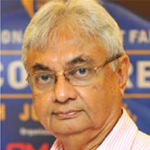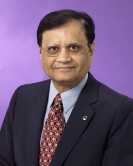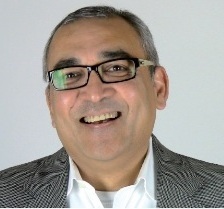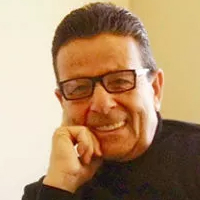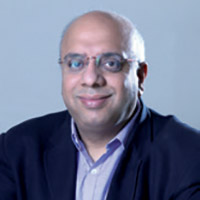
Sandeep and Sarah Shaikh Gonsalves
Founders
SS Homme
Educating masses on functional bespoke garments is a challenge
SS Homme celebrates the craft of traditional tailoring through the bespoke process while providing customers affordable luxury. The brand provides a transformational experience, where each suit is hand-cut and then sewn together according to requirements. Founders Sandeep and Sarah Shaikh Gonsalves share insights about the evolving menswear and bespoke markets in India.
Fibre2Fashion: How would you describe the market for tailored menswear in India? At what rate is it growing?
Sandeep and Sarah Shaikh Gonsalves:
In India, tailored garments have been ruling the market for decades, but with globalisation, the demand for ready-to-wear garments has increased. However, the discerning and refined crowd believes to this day on investing in functional garments that are tailor-made for them and can be sustained for years. India has been home to some of the most popular tailoring houses, but at the same time, compromises were made on quality and craftsmanship. There has been a boom in the number of bespoke houses in India as more gentlemen become aware about the perks of bespoke garments. The prospect of complete customisation for varied body types is something that every person is interested in. The fits, cuts and silhouettes have definitely evolved over the years, and with the advancement of technology, there has been a vertical integration of manufacturing and design.
F2F: When and why did you get into menswear?
SASSG:
While Sarah studied fashion design and construction from the London College of Fashion and Wigan & Leigh, I had formal training in business management after working with renowned MNCs in the country. We were intrigued by the exquisite detailing, and the precision of bespoke offered in India could barely match the standards of Savile Row, London. Our eureka moment was when we realised that a bespoke menswear brand would be hugely successful in India where men have varied body types.
F2F: How has the brand SS Homme evolved since its inception?
SASSG:
We started off as a very nuclear team wherein Sarah and I used to personally consult each client and take them through our unique bespoke process. We spent enough time at Savile Row to learn and master the consultation process. Gradually, as we began to expand, we hired experts in the Indian bespoke industry alongside marketing and communication specialists to place the brand correctly in the market. Initially, the prime focus was creating bespoke garments, but slowly we ventured into the Indianwear market, and from there it has been a journey indeed. Moving forward with printed garments and keeping it minimal has been a very experimental journey. Finally, the latest evolution is the relocation from a 700 sq ft store to a grand 3,500 sq ft store conceptualised by Sarah and me.
F2F: What is the size of men's accessories market?
SASSG:
With years passing by, the accessories market has become more focused and concentrated due to the influence of fashion and personalisation. When we talk of accessories, the most popular are the 'fusion' ones which attract the major target market. Due to its versatility and utility, the market is thriving and expected to grow at a healthy rate in the years to come.
F2F: How is the accessories line of SS Homme faring?
SASSG:
Our range of accessories can be classified into two separate categories: business accessories and wedding accessories. Business accessories can be tweaked a bit and work brilliantly for eveningwear. We create handcrafted lapel pins, cufflinks and brooches which are inspired by the theme of the collections and are very versatile. More often than not, clients who purchase a garment will also purchase a set of accessories at the same time. So, the significance is high in overall revenue.
F2F: What are the demographics of your shoppers?
SASSG:
We service engaged shoppers, 90 per cent of whom are men since its bespoke menswear brand. Once in a while we do have women who make purchases for their loved ones and visit us annually for the sole purpose of gifting. The range we cater to for the majority of the year is 26-42 year olds.
F2F: What is the ethos of SS Homme?
SASSG:
Our design aesthetic is minimal and largely symmetrical. We believe in creating unique pieces which celebrate the art of geometry. In each of our collections, since the inception of the brand, we have incorporated various structures and patterns which are heavily influenced by geometry and precision. While starting the brand, we were clear that we wanted to provide the Indian gentleman with a bespoke experience that is second to none-one that is in keeping with international standards.
F2F: Where do you source fabric and accessories from? What kinds of fabrics do you work with for mens' suits and indutvas?
SASSG:
We source the fabrics from England and Italy. For ethnic garments or indutvas, we source our fabrics locally. We have an extensive variety of high quality English and Italian fabrics by Dormeuil, Scabal, Holland & Sherry, Loro Piana, Huddersfield, Vitale Barberis Canonico, etc. We stock exquisite worsted wool in super 100s to super 180s in mohair, cashmere, finest merino wool and linens that are suitable for various climates. These fabrics are ideal for suitings, blazers and trousering for business mens' suits and special occasions that are perfect for the cosmopolitan man.
F2F: Where is your workshop? How many kaarigars work at the facility?
SASSG:
Our workshop is located in Mumbai. We have 19 kaarigars who work at the facility.
F2F: Which machines do you use?
SASSG:
A total of 10 machines are placed over the entire workshop space. We have eight sewing machines, one overlock machine and one fusing machine. Dedicated spaces are allocated to all the professionals.
F2F: What are the trends in terms of fabrics, silhouettes, colours, trims and embellishments for mens' indutvas for this festive season?
SASSG:
Indian fashion is indeed experimental and edgy and is moving away from the heavy embroidery and boring silhouettes. One major reason is the interest men have gained in fashion and styling; everyone wants to look trim and refined with new-age designs and tailoring. Raw silk, worsted wool and cotton silk are some of the widely used fabrics to create signature masterpieces. In terms of colours and embellishments, a lot of hand embroidery and pastel shades are being used. In terms of eveningwear, minimal details with navy and burgundy are the definite elements to make you stand out. Ankle-length trousers, asymmetrical cuts and geometrical layers are the standouts for traditionalwear this season.
F2F: What are the challenges in offering bespoke services in India?
SASSG:
The biggest challenge is to educate the masses about the benefits of functional bespoke garments. People tend to confuse custom-made with bespoke and they are rarely aware about the experience and the amount of work that goes into it. The range of fabrics and the level of personalisation are unmatchable. Another challenge is the psychology of the consumers in working with the standard sizes available in ready-to-wear.
F2F: What is next in the pipeline for SS Homme?
SASSG:
We aim to turn this business into the largest designer menswear retail store in India with multiple brick and mortar stores in tier-I cities across the country in the next few years. We are exploring the idea of launching in New Delhi in the coming year or so. Several clients come from abroad since the design aesthetic really speaks to them and when the time is right, we will be looking at diversifying and taking the brand global. (HO)
Rahul Mehta
Arun Sirdeshmukh
Fanny Vermandel
Abhay Gupta
Gabi Seligsohn
Rahul Mehta
Pradip Mehta
Aseem Prakash
Bill D’Arienzo
Anurag Batra


20230103183907.png)
_8.JPG)
